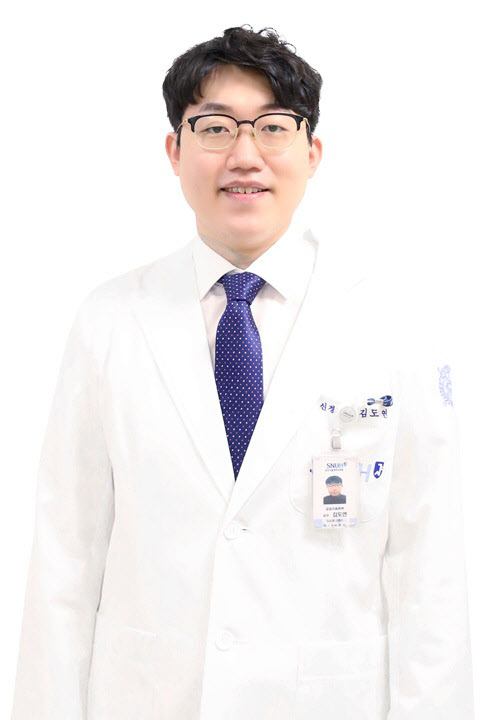RELATED Live.
- About us
- KIMA Members
-
KIMA Doctors
- All
- Anesthesiology
- artificial joint center
- Breast and Endocrine Surgery
- Breast cancer and thyroid cancer center
- Breast Surgery
- Cardiology
- Cardiothoracic Surgery
- Cerebrovascular Center
- Colorectal Surgery
- dental and maxillofacial surgery
- Dermatology
- Endocrinology
- Gastroenterology
- General Surgery
- Genito-Urology
- Hematology
- Hemato-oncology
- Infection Center
- Internal Medicine
- International Healthcare Center
- Korean Medicine
- liver center/Pancreas and billiary tract center
- Liver Transplantation
- Neurology
- Neurosurgery
- Obstetrics & Gynecology
- Ophthalmology
- Orthopedic
- Otorhinolaryngology
- Pediatric & Juvenile
- Pediatric Allergy and Respiratory Diseases
- Pediatric Gastroenterology
- Pediatric Neurology
- Pediatrics
- Physical Medicine & Rehabilitation
- Plastic & Reconstructive Surgery
- plastic surgery
- Pulmonology
- Radiation oncology
- Rheumatology
- Thyroid & Endocrine Surgery
- Urology
- Vascular Surgery
- KIMA News
- KIMA Live
- Community
KIMA NEWS

Dr. Kim Do-Yeon, a professor in the Department of Neurology in the Public Sector at Seoul National University Bundang Hospital, received the Outstanding Oral Presentation Award at the World Stroke Symposium hosted by the Korean Stroke Society.
Seoul National University Bundang Hospital announced on the 21st that "Prof. Kim Do-Yeon made a presentation on the topic of 'Emergency Hotline System for Stroke Patients' at a symposium held on the 16th“ and that “the corresponding system was acknowledged by the audience and the Society for its contribution to the efficient utilization of medical resources by producing practical effectiveness in urgent situations."
The Stroke Patient Hotline System is currently being operated at the Regional Cardio-cerebrovascular Center (Center Director Prof. Bae Hee-Jun, Department of Neurology) of Seoul National University Bundang Hospital. It is a system where patients or their guardians can call a hotline for free consultation if symptoms of stroke in a patient are detected and provides guidance on how to contact the hospital for an immediate visit in case of urgency.
The medical staff registers the information of patients who have been diagnosed with or are at risk of stroke in the Stroke Patient Hotline System. Then, if the patient develops stroke-related symptoms, the hotline system is contacted and the medical staff can use the registered patient's information and symptoms reported to arrange surgery or procedures to be performed in advance before the patient arrives at the emergency room.
The Stroke Patient Hotline System was planned by Seoul National University Bundang Hospital since the early stage of operation of the Regional Cardio-cerebrovascular Center in 2015, and registration of patients began the following year. As of October 2023, 10,712 registered patients and 10,076 other patients have contacted the Center through the hotline. Among the 2,244 cases of patients who were registered and contacted the hotline from 2019 to 2020, the system was able to quickly provide necessary guidance in 68 cases that required urgent surgical procedures.
The level of satisfaction with the hotline was found to be very high, with a satisfaction score of more than 7 (out of 10) points by 93.9% of the patients (as of 2020) who used the system given its ability to provide necessary guidance very quickly and eliminate unnecessary time for pre-procedural and surgical preparation in emergency situations as well as improve patient prognosis.
In addition, the Stroke Patient Hotline System reduced unnecessary medical and social costs. Although patients visited the hospital due to anxiety if they experienced symptoms similar to those of stroke prior to the operation of the system, it was possible to alleviate their anxiety following its operation. In fact, the number of cases of emergency outpatient treatments, excluding scheduled outpatient treatments, during the 6-month periods prior to and after the operation of the system decreased by 21%, from 103 cases prior to the system to 81 cases after the system.
Prof. Kim Do-Yeon said that "The Stroke Patient Hotline System plays the role of an anchor to prevent urgent patients from missing treatment opportunities and reduces their anxiety because they cannot get to the emergency department in time," and added, "I am very pleased to be recognized for its excellence at this symposium."
Prof. Bae Hee-Jun said, "Thanks to the national interest in and support for the Regional Cardio-cerebrovascular Centers, we were able to establish and operate the Stroke Patient Hotline System," and added, "We will continue to make our utmost efforts to ensure that medical resources are used as efficiently as possible by providing timely procedures and surgeries and preventing unnecessary outpatient visits by stroke patients."
RELATED Doctor
RELATED Members
Inquiry